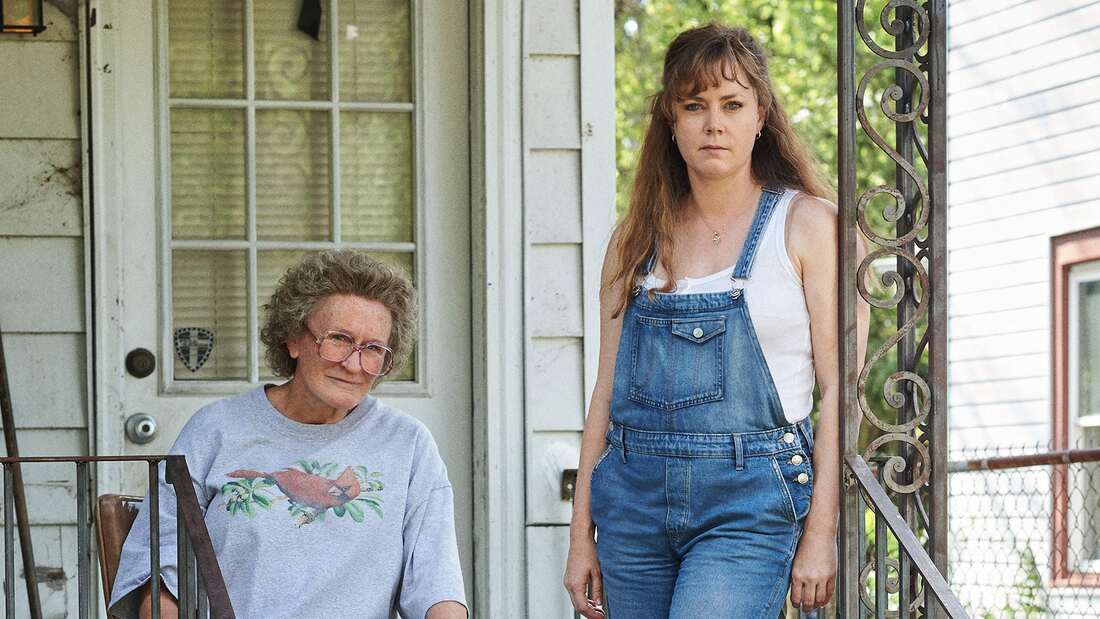Evan D.After the shocking victory of Donald Trump in 2016, there has been a certain obsession, a fetishization even, of the “white working class.” This amorphous group of Appalachia dwellers, “hill people” as MawMaw (Glenn Close) calls them, have been the subject of intense scrutiny. They’ve been focus grouped, polled and interviewed in every rural diner the New York Times could get a reporter to, all in search of an explanation for our most unexpected president. It’s no wonder that, when a young lawyer/venture capitalist documented the hardships he suffered emerging from that world, his memoir became a sensation. With Hillbilly Elegy, J.D. Vance purported an explanation for the Appalachian conundrum, and now Ron Howard has brought that story to screens across America. J.D., played by Owen Asztalos as a child and Gabriel Basso as an adult, is seemingly the perfect person to elucidate the unique challenges of white poverty in middle America. He grew up in a single parent home in blue collar Ohio, never losing touch with his family’s rural Kentucky roots. I suppose a few short summers in Jackson makes one an expert on the country experience. But most importantly, J.D. got out. Through hard work, he bootstrapped his way to Yale and could serve as a bridge to “elite America,” a group that otherwise could never, in his telling, understand the rust belt. It’s this idea — that anyone who is willing to put in the work can overcome their station in America — that serves as a cornerstone to Hillbilly Elegy. No doubt J.D. had a tough go, his mother Bev (Amy Adams) struggles throughout his life with drug addiction and her revolving door of partners certainly never provide the family with any sort of stability. His success should underline that central tenet of hard work paying off, but consistently J.D. looks like the exception rather than the rule. Throughout his his childhood, J.D. is faced with all the hallmark difficulties of poverty: from abuse at the hand of his mother to food insecurity. Every step of the way the refrain is clear, your people will watch after you and you them. When his mom relapses J.D. drops everything to go help her, she’s family. That selflessness only extends so far though, he can’t be bothered to even check in with his girlfriend Usha (Freida Pinto) or show an interest in her life. It’s not until he finally realizes that she’s his family too that J.D. makes any sacrifice for her. More than anything, a mentality of “all for us, none for anyone else” pervades Hillbilly Elegy. It’s certainly nice that J.D. Vance is willing to risk his future and career for his family, but he should know, perhaps more than anyone, the strife of those outside his household. The same folks that desperately need help are the ones that stigmatize it. MawMaw at one point casts aspersions on a neighbor for being on food stamps, despite subsisting off the Meals on Wheels program herself. To pull yourself up by the bootstraps you’ve got to have bootstraps to begin with. As much as Hillbilly Elegy fails as a piece of storytelling, it isn’t totally a failure of filmmaking. Ron Howard does all he can to strip out much of the bad faith politics from Vance’s book, simultaneously neutering any potency it may have contained. Still, the cinematography is quite lovely, leaving the film at least looking like an Oscar contender. With the acting, Glenn Close is certainly doing... something, and even at her worst Amy Adams is still Amy Adams. In less capable hands this would be a totally unwatchable mess, instead it’s simply a frustrating bore. Maybe Hillbilly Elegy can find an audience on Netflix among the same folks who found the book insightful. For the rest of us, somehow a story about the poor white folks of America losing their culture while black and brown communities around the country are dying just doesn't seem necessary. Especially when those are the same people actively supporting harm against black and brown communities. Almost as if it’s part of her no nonsense, non-PC charm MawMaw spouts racist quips about Polish people and Native Americans, meanwhile J.D. absolutely loses his shit over a redneck joke at a Yale dinner. Needless to say, the Vance clan isn’t exactly the most likable group but they do an excellent job of highlighting the hypocrisy inherent to this story. If anything I think this failure of a film is actually a case for more assistance to hurting folks around the country, black or white, not less. Vance was the exception in his community because he was clearly smart enough and had enough support to get through college and law school. What about the rest of the Appalachians who may not have those same things? Hillbilly Elegy is a mess and probably an unavoidable one at that. Credit to the filmmakers for doing their best, but maybe this is just a story better left alone. 3/10
Comments
|
Categories
All
Archives
April 2024
|
